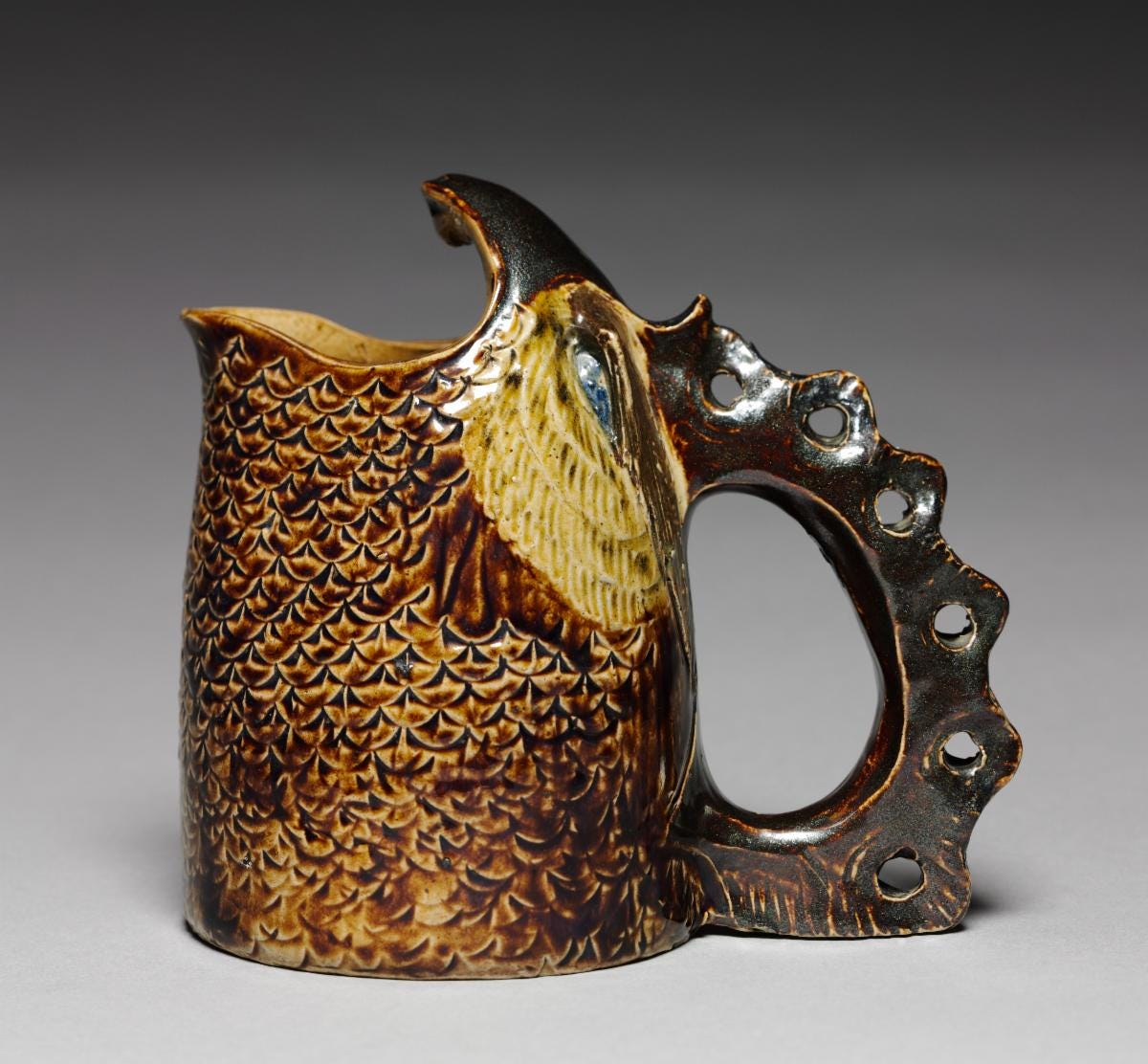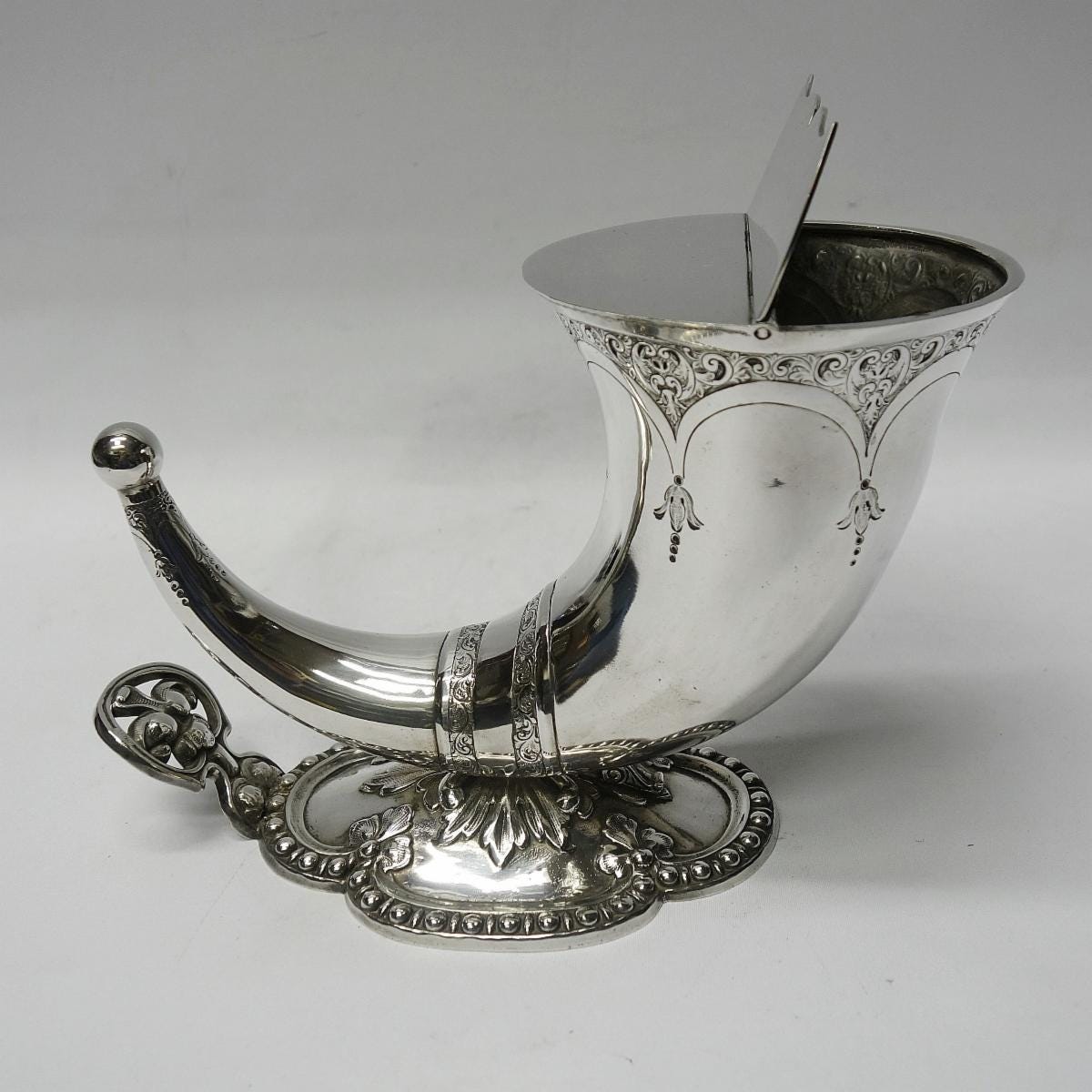Too many nights of dinners on tray tables getting you down? Today’s gem from our collection recalls more elegant times.
ACHC #1971.053.1 Donated by Fay H Elliot
This is a spoon warmer. It harkens back to the days when dinners were formal affairs with white damask tablecloths, silver settings, and liveried staff to serve.
Think Downton Abbey or the Newport mansions. Spoon warmers were considered a necessity in Victorian times for any well-run household.
Prior to the 20th century, many homes, even of the well-to-do, didn’t have central heating. Houses were made of stone. Rooms had high ceilings and were generally cold and drafty. Kitchens in most grand houses were downstairs and removed from the dining room. Staff were encouraged to get the food upstairs quickly once the cook declared the meal ready. It was important that food be kept warm while being brought into unheated dining room. Using a cold spoon to serve the warm meal wasn’t acceptable.
A spoon warmer could be filled with hot water in the kitchen and then carried upstairs and placed on the table or sideboard. The serving spoons were set inside and kept warm until needed.
Collection of Cleveland Art Museum
The earliest spoon warmers date to the mid-1860s England. The nautilus shell and seacoast themes were popular. Fanciful designs of hunting horns, open-mouthed fish and frogs were also made. Though many spoon warmers were silver or silver plate, porcelain, pottery, majolica, brass, and copper were also used. The majority of spoon warmers were produced by craftsmen in England. However, Reed & Barton in Taunton, MA was the sole company in America that made specially designed silver spoon warmers.
Roberts & Belk, Sheffield, England
With the end of World War I, conventions changed, and central heating was more prevalent; the need and use of spoon warmers became irrelevant.
Not mass produced, spoon warmers are somewhat hard to find today. We are fortunate to have the nautilus shell one in our collection. Not part of today's lifestyle, but beautiful all the same.







